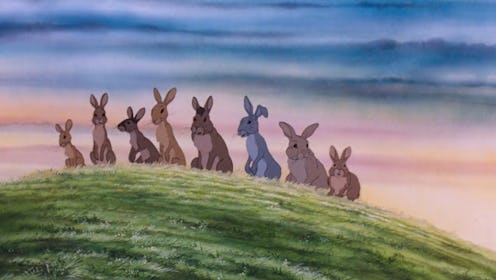
Author Richard Adams has died at age 96, his daughter confirmed to BBC. He passed away on Christmas Eve. His daughter says her father had been "ailing for some time" but died peacefully. The writer was most famous for his 1972 novel Watership Down, about a small group of rabbits in search of a new home. Adams also penned Shardik and The Plague Dogs.
Adams, born in 1920 near Newbury, Berkshire, England, never intended to be a writer. He studied modern history at Oxford before serving in the British Army in World War II. After the war, he returned to school and later joined the civil service.
It wasn't until Adams was 52-years-old that he began to flex his fiction writing muscles. The idea for his most famous story was born when his two daughter's urged him to tell them a story on their drive to school. He had never before written a word of fiction, but he began telling them the tale that would become his first novel: the critically acclaimed Watership Down. He began putting the story to paper in evenings, a process that took him two years. “It was rather difficult to start with,” he told The Guardian in a 2015 interview. “I was 52 when I discovered I could write. I wish I’d known a bit earlier. I never thought of myself as a writer until I became one.”
The book was rejected seven times, eventually finding a home with small publisher Rex Collings. It became an immediate classic. In 1972, Adams won both the Carnegie Medal and the Guardian Children's Prize for the book. The novel has sold millions of copies in the 30+ years since it's release, and it has been adapted for film, television, and theatre multiple times.
Anyone who has read Watership Down knows, of course, that it is far from a happy tale about rabbits playing in fields. The story is actually pretty terrifying. But Adams didn't believe in sanitizing things for children; in fact, he felt that a good scare was actually pretty good for them. “When you’re little,” he told The Guardian, “you don’t distinguish between fiction and reality. It’s all reality. And thank goodness for that. I do not believe in talking down to children. Readers like to be upset, excited and bowled over. I can remember weeping when I was little at upsetting things that were read to me, but fortunately my mother and father were wise enough to keep going.”
Images: Nepenthe Productions